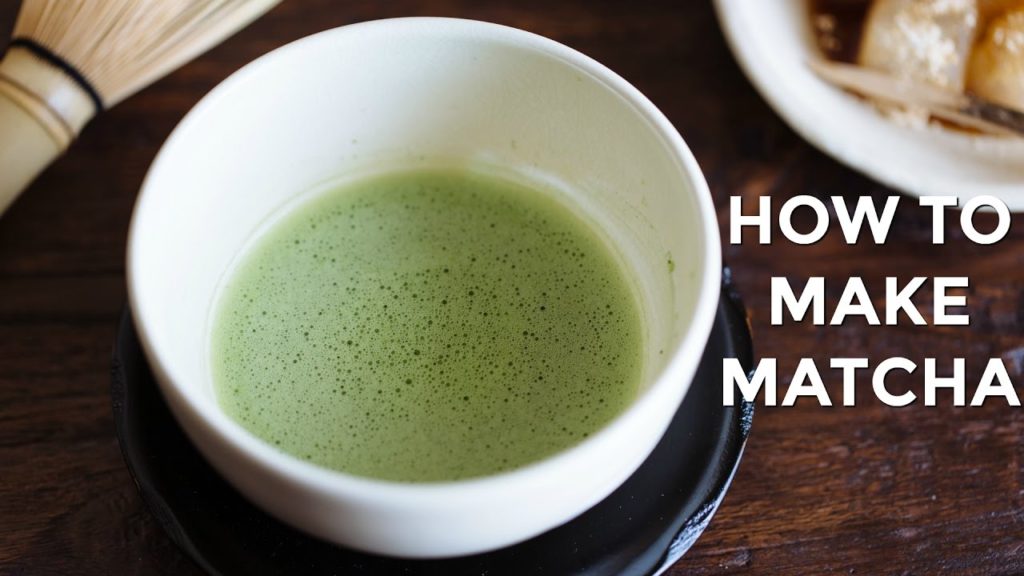Matcha tea, like green tea, comes from the Camellia sinensis plant. However, its nutritional profile is different and it also has a different form of cultivation. What is it for? Here we detail it.
Matcha tea is a product that has become popular for its interesting properties. It comes from the same traditional green tea plant, Camellia sinensis, but it is a powder product with a different nutritional profile since its cultivation is also particular.
To grow this type of tea, farmers cover the plants 20 to 30 days before harvest to avoid direct sunlight. In this way, the production of chlorophyll increases, as does the amino acid content. Even, the plant acquires a darker green hue.
When the harvest time comes, the best leaves are picked by hand and the stems and veins of the plant are removed. Then they are ground and a bright green powder is obtained, which is distributed under the name of matcha tea. Below, we detail its properties and uses.
Table of Contents
Matcha tea nutritional properties
As we have mentioned, matcha tea is characterized by its unique nutritional profile. Although it has similarities to green leafy tea, its concentration is higher. According to the SELF Nutrition Database, one serving of matcha tea (1 teaspoon or 1 gram) contains:
- Protein (between 250 and 300 mg)
- Total amino acids (about 272 mg)
- Lipids (about 50 mg)
- Minerals like potassium, magnesium, calcium, zinc, phosphorous and iron
- Vitamins A, B1, B2, B6, C, E and K
On the other hand, an estimate published through the Journal of Chromatography A suggests that the number of catechins contained in this type of tea is up to 137 times greater than other types of green tea. Due to this, in health issues, it is one of the preferred options.
Although it comes from the same plant as green tea, matcha tea is cultivated differently and, therefore, its nutritional profile is unique.
Main uses of matcha tea
Matcha tea has been used as a nutritional supplement to promote wellness in recent years. The powder is beaten with hot water and a drink is obtained to complement the diet. Now, due to its texture and flavor, some people are using it to make desserts, cocktails, and other types of drinks.
However, in general, most consumers prefer it for its health applications. And it is that, although many still do not know it, several investigations have determined that its components are adjuvants in the prevention of some diseases.
Brain health
The drink made with this natural tea is usually recommended to improve brain health. Due to its content of stimulating substances such as caffeine and L-theanine, it can contribute to increased alertness and an increase in the energy level.
Research published in Food Research International noted that matcha can produce improvements in attention, reaction time, and memory, compared to placebo. Although it is a subject that still requires research, the findings suggest that it may be a good complement to improve brain performance.
Heart health
Due to its concentration of catechins, this type of tea also provides protective effects on heart health. According to a review of studies published in the medical journal Current Medicinal Chemistry, catechins have antioxidant, anti-inflammatory, antiplatelet, and antiproliferative activity.
Due to the above, matcha and other varieties of green tea are adjuncts in reducing high cholesterol levels, blood pressure problems, and other factors that increase the risk of chronic cardiovascular diseases.
Matcha tea is not a substitute for medical treatments in cardiovascular diseases. However, due to its catechins content, it can serve as an aid to caring for the heart in healthy adults.
Body weight
Another use of matcha tea has to do with body weight. It should be clarified that this is not one of many miraculous products that promise to reduce pounds in a short time. Simply put, as part of a healthy, calorie-controlled diet, you can promote weight loss.
In research published through The American Journal of Clinical Nutrition, consuming green tea extract helped increase fat burning by up to 17% during moderate exercise. In addition, other research has associated its intake with higher energy expenditure.
In any case, it is a subject that is still being investigated and whose evidence is still insufficient to make claims. Therefore, if it is about losing weight, it is essential to prioritize the recommendations of the doctor and the nutritionist.
Side effects and contraindications of matcha tea
In most healthy adults, matcha tea is considered safe, as long as its consumption is moderate. Two or three cups a day is enough, each made with one gram. Now, due to its caffeine content, this tea can cause side effects, especially when doses are exceeded or in those who have a sensitivity to this substance.
Such effects include:
- Irritability
- Insomnia
- Headaches
- Palpitations
- Dizziness
- Nausea and vomiting
On the other hand, as detailed in a review of the literature published in the Chinese Medical Journal, the catechins in this tea can affect iron absorption, affecting patients with iron deficiency anemia, for example. It can also affect the absorption of zinc.
Patients with heart disease, kidney problems, or stomach ulcers should avoid consuming this tea without first consulting the doctor. Its components can interfere with the action of medications used to treat these conditions.
